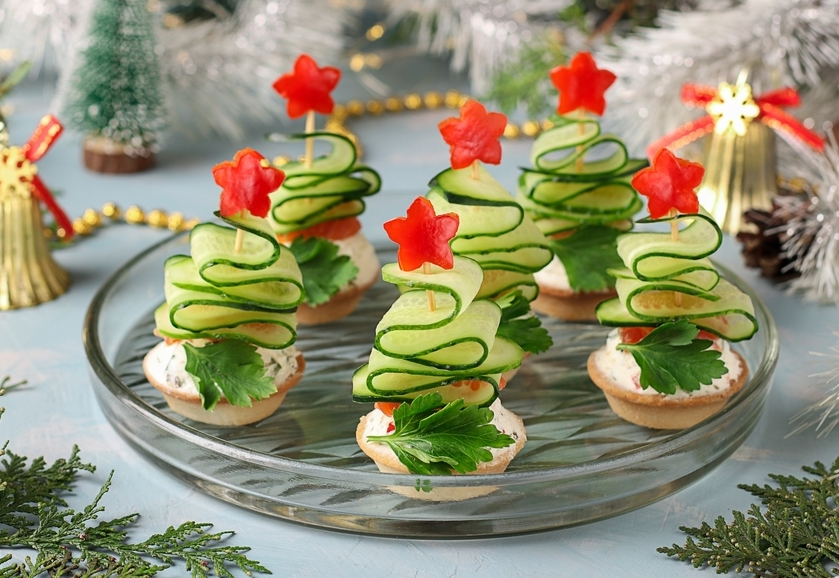Nutritionist-dietician Jo Sebastian debunks holiday eating myths.
Christmas is less than two weeks away. By this time, you have most likely been to at least one party which won’t be your last this year. And with parties come food. Lots of it.
With all the eating we have been doing these days, one question has been hounding us for sure: How do we eat healthily this Christmas season?
We often think of the holidays with a Last Supper mentality, with one eye already into the new year where we’ll come up with resolutions. This is why we tend to go overboard with food during the holidays.
To help us enjoy our favorite holiday eats while keeping healthy, The Post interviewed Jo Sebastian, a registered nutritionist and dietician, who has a growing following on online platforms like TikTok where she currently has upwards of 197,000 followers, Instagram with over 69,000, and YouTube with more than 30,000.
Jo’s videos are a whiff of fresh air on social media where diet trends are almost always a hot topic. Instead of dishing out tips on how to lose weight, she does quite the opposite: she encourages her followers to eat.
And don’t we all prefer to be encouraged to eat rather than be restricted from doing one of the most pleasurable of human activities?
Facts vs. myths

Jo, like all of us, is looking forward to Christmas gatherings with delicious meals shared with the ones we hold dearest in our heart.But how can we enjoy these celebrations if we’re constantly worried about gaining weight? About feeling guilt or shame after eating more than our usual portions?
According to Jo, myth number 1 is “saving up” calories for the “big meal” you’re having later in the day. “Although this makes sense because in our mind, ‘I’ll eat a lot later, so I’ll make room for it.’ It usually leads to us being irritable, hangry, cranky, and likely not enjoying the meal because we feel rushed, unsatisfied, and more obsessed with the idea of food during the holidays.”
Jo stressed that we don’t need to “save up on calories” and just eat normally throughout the day.
The second myth is related to the first because if we give in to the temptation of eating a lot at a party, then we need to “work off” all the food that we eat, right? Jo, however, said that this shouldn’t be the case. “This creates a negative relationship between exercise and food because now you’re just thinking that all of this food is bad and has to be burned off and has to be earned. It makes it hard to see movement as anything more than just burning off your food,” she explained.
She said we often think of the holidays with a “Last Supper mentality,” with one eye already into the new year where we’ll come up with resolutions, being a whole new healthier individual included. Jo thinks this is why we tend to go overboard with food during the holidays.
“The holidays are not a last hurrah to a clean slate in the new year but more of a celebration of what you enjoyed in the past year. It doesn’t have to only be signified by eating to uncomfortable amounts but it can also be spending time with people or celebrating yourself in other ways,” she said.
Lastly, another common myth is that anything you eat during the holidays is unhealthy, bringing you a step closer to developing diabetes or heart problems.
On this, Jo said: “Of course there will be lechon and a lot of sweets, but we have this tendency to think that holiday food is only for the holidays, so we really go all out. If we think about it, all these foods can be eaten anytime of the year. You can have bibingka whenever you want. You can have holiday ham in the middle of the year if you want to. That’s completely fine.”
She added that when we create the notion that holiday foods are so special in the sense that you’re only allowed to have them during a certain time of the year, we create a “scarcity mindset.” This leads us to eat to uncomfortable levels because we feel that it will be some time before we get to indulge ourselves with lechon or morcon or puto bumbong again.
“You’re allowed to enjoy the holidays, just make sure you are able to enjoy it by eating a comfortable amount of food,” Jo enthused.
Eating healthily this Christmas season

With these myths finally debunked, we asked Jo to share with us tips on how we can enjoy all the delectable handa while keeping ourselves healthy.
“In relation to the myths, we tend to shift our routines to cater to noche buena and all these things. By shifting our routines [we end up] skipping meals, working out more, and all these things because we’re trying to compensate for the meal that’s going to happen,” Jo said.
Her advice? Stick to our regular routine. “Nothing special. Keep going with the rest of the day. Do what you usually do. That way it doesn’t feel like it’s such a big deal to have that meal. You’re not too hungry when you have it; you’re not too tired or irritable before your meal; it just becomes another meal with delicious food.”
She said we can add fiber and proteins alongside the carbs but that shouldn’t be a priority, at least this Christmas. “It’s not as if you’ll have holiday meals every single day of December, right?” she quipped. “Maybe you’ll have five or ten, which is perfectly fine.”
The secret to healthy eating, not only during the holidays but every day, need not be complicated after all. “It’s all about choosing the food that we like and eating at a comfortable level. It’s okay to overeat but make sure you’re still comfortable, still having fun, and still able to enjoy yourself,” said Jo.
She added that if there are certain foods that give you a holiday feel, like puto bumbong in Jo’s case, that’s okay. “Food is not only fuel; it’s also nourishment and culture and traditions. It’s allowed to be those things.”
Losing those “holiday fats”

Many of us dread holiday fats. Jo assures us, however, that it’s normal to gain weight during Christmas. “If we try to stay close to our usual routine, then the weight gain shouldn’t be too difficult to come back from because you will just go back to your usual routine.”
She advised against the mentality that we must lose weight quickly—whether it’s Christmas or not—because it leads us to restrictive diets. “Losing weight fast often also means that you’re going to gain it back fast as well,” Jo explained.
She said it’s better for us to stick to our usual routine for our body to find its “comfortable set point” again because going overboard and swinging to the side of restriction will only make losing weight even harder.
The most important thing, she stressed, is accepting that weight gain is a part of life. “I’m not saying don’t care about it. It happens; it’s not a big deal. Go back to your usual habits, incorporate your healthy routine by adding fiber with movement without going overboard.”
We deserve to eat
The UP Diliman alumna explained that her philosophy, which revolves around the notion that all of us deserve to eat, is “rooted in removing the rules around food and reminding ourselves that our body needs fuel.”
This is something Jo wished she had learned when she was younger, admitting that for a long time, her relationship with food was centered around the thought that she wasn’t allowed to eat. The former ballerina thought that food was bad, and it was the enemy, causing her to restrict her diet and go on a cycle of restrictive eating then binge eating next.
“‘You always deserve to eat’ is a reminder that you’re human. You need food. Food is your friend. It’s nourishment. It’s culture. It can be all these things and you being alive means you deserve nourishment; you deserve to eat,” she said.
Jo added that once we get rid of the rules and restrictions, that’s when we’re able to listen to and learn from our body. “We think that these rules are going to set us up for success and give us direction but what happens is that you end up fighting your body.”
And this struggle with our body makes it hard for us to listen to it. Jo emphasized that when we remind ourselves that we are allowed to eat and there are no rules, that’s when we find out more about our body and what we like. “For example, you’ll realize that you like vegetables and that it makes you feel more satisfied,” she said. “Or, when I’ve had too many donuts, I don’t feel comfortable. But this doesn’t come from fear. It comes from understanding my body.”
Jo said that some people might misunderstand her philosophy and think that it’s just all about always eating. “It’s taking it out of context,” she said.
“At its core is that food is part of nourishment and you’re allowed to nurture yourself.”




